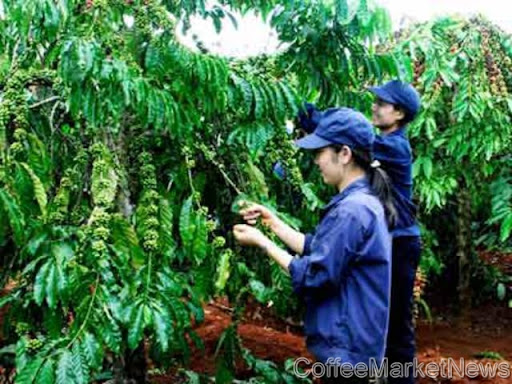 Nairobi's coffee auction is expected to take an early recess this year due to low supply caused by quick maturing of last season's crop.
Nairobi's coffee auction is expected to take an early recess this year due to low supply caused by quick maturing of last season's crop.
The auction usually breaks in August when volumes run low, then reopens in September as the main season begins, but this year the auction may break as early as June.
Coffee experts say the early maturing of last year's crop was caused by changing weather patterns.
"The coffee that was sold in January was normally supposed to be sold in March, which was two months early," said Daniel Mbithi, the chief executive of the Kenya Coffee Producers and Traders Association.
At present, the auction is trading an average of 20,000 bags daily which is lower than the 30,000 to 35,000 bags the auction does at similar periods in previous years.
Coffee supply to the auction is expected to drop further as it nears recess, driving prices upward.
The auction has this year been enjoying high prices for all coffees.
The average price of a kilogramme has risen by 67 per cent to an average of $10 per kg, compared to a similar period last year.
But small scale farmers who form the majority of growers are not reaping high gains due to the small quantities they produce.
On average, most farmers produce 1.5 to 2.5 kgs per coffee bush which has a potential of producing more than 20 kgs of coffee.
Only 15 per cent of the total production makes it to the premium classes of 1, 2, and 3, according to the Coffee Board of Kenya.
The low production and poor quality have been attributed to poor husbandry practices and lack of proper inputs.
Farmers have thus been encouraged to utilise financing provided by government through the Coffee Development Fund (Codef), and the increased private sector driven training programmes to improve production.
The current high coffee prices are due to a production deficit of 10 to 15 million bags created by increased global consumption.
"Consumption is going up while production has actually begun to drop," said Mr Mbithi.
The deficit in production is expected to fall further due to the predictable drop in Brazil's production occasioned by changing weather patterns which earlier in the year caused havoc through flooding.
Brazil, the largest producer of coffee in the world, expects this year's production to drop to about 40 million bags down from the annual 50 to 55 million bags.
This is expected to further shore up the high prices currently being experienced.
Record domestic coffee prices in Vietnam spooked exporters struggling to secure supply as farmers failed to honour contracts, while demand from local roasters stirred up trade in Indonesia.
Many farmers in Vietnam refused to deliver beans to exporters after domestic prices rallied to all time high $2,205 a tonne, creating artificial tightness in the physical market.

No comments:
Post a Comment